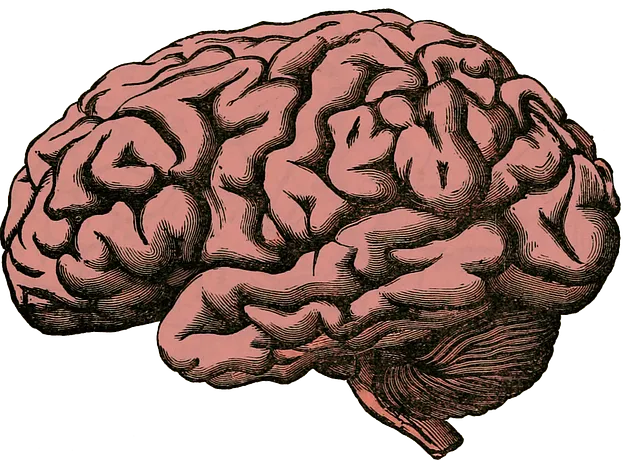Social Skills Training in Lakewood is a powerful tool for managing anxiety and depression, offering practical strategies through role-playing and group therapy. Organizations like Kaiser Permanente integrate this approach into holistic healthcare, empowering individuals to develop healthier coping mechanisms and improve their quality of life. Public awareness campaigns support these efforts by educating the community about mental health, ensuring residents have access to necessary resources and fostering a supportive environment for recovery alongside Depression Prevention initiatives. For those seeking mental health help in Lakewood, these comprehensive services provide an effective path towards better social well-being.
Social skills training is a powerful tool for managing mental health conditions, fostering better interactions, and enhancing overall well-being. This article explores the significance of this approach, delving into strategies that can aid individuals in navigating social scenarios with confidence. We’ll also examine resources like Lakewood and Kaiser, highlighting their efforts in providing support systems for those seeking mental health help. By understanding these aspects, you’ll gain insights to improve your or a loved one’s social skills and overall mental health journey.
- Understanding the Importance of Social Skills Training for Mental Health Conditions
- Strategies and Techniques for Effective Social Skills Training
- Navigating Resources and Support: Lakewood and Kaiser as Examples
Understanding the Importance of Social Skills Training for Mental Health Conditions

In today’s world, where mental health conditions are increasingly common, social skills training emerges as a powerful tool for managing and improving overall well-being. This form of therapy is particularly beneficial for individuals seeking to navigate their mental health journeys, especially in communities like Lakewood where access to mental health services is vital. The significance lies in its ability to empower people with the necessary tools to interact, communicate, and connect with others, thereby fostering a sense of belonging and reducing feelings of isolation.
When coupled with self-care routine development for better mental health, social skills training becomes a game-changer. It helps individuals develop healthy coping mechanisms and enhances their resilience in managing symptoms associated with conditions such as anxiety, depression, or trauma. Kaiser’s resources, known for comprehensive healthcare solutions, often include social skills training as part of their holistic approach to mental health treatment. Through group sessions or personalized coaching, participants learn to express themselves effectively, assert boundaries, and interpret social cues, thereby improving their overall quality of life. Additionally, public awareness campaigns development can further support these initiatives by educating the community on recognizing and addressing mental health concerns.
Strategies and Techniques for Effective Social Skills Training

Social Skills Training is a powerful tool for individuals navigating mental health conditions, offering them the chance to enhance their interactions and improve overall well-being. At organizations like Kaiser, programs tailored to these needs are designed to empower participants with effective strategies. One key approach involves role-playing scenarios, allowing individuals to practice social exchanges in a safe environment. This technique fosters confidence and helps individuals learn to interpret social cues, crucial for managing conditions such as anxiety or depression.
Additionally, group therapy sessions provide a supportive network where members can share experiences and gain insights from one another. Activities focused on active listening, non-verbal communication, and assertiveness training contribute to self-esteem improvement and better stress management. Lakewood’s mental health resources often include workshops that teach practical skills for everyday social interactions, promoting a sense of community and helping individuals feel more connected and supported in their journey towards recovery, especially when coupled with Depression Prevention initiatives.
Navigating Resources and Support: Lakewood and Kaiser as Examples

Navigating Resources and Support is a critical aspect of managing mental health conditions. In cities like Lakewood, individuals seeking mental health help can access various community resources and professional services tailored to their needs. The city’s robust mental health infrastructure includes non-profit organizations, therapy clinics, and support groups that cater to different demographics and issues, making it easier for residents to find appropriate care.
For instance, Kaiser Permanente, a prominent healthcare provider, offers comprehensive mental health services in Lakewood, highlighting the integration of mental health care into primary healthcare systems. Their approach emphasizes early intervention and continuous support, reflecting current trends in Mental Health Policy Analysis and Advocacy. By combining access to primary care with specialized mental health services, Kaiser helps prevent burnout among patients and promotes effective stress management strategies. This model not only improves treatment outcomes but also aligns with the broader goals of Lakewood’s mental health policy, ensuring that residents have easy access to quality care.
Social skills training plays a pivotal role in enhancing the quality of life for individuals with mental health conditions. By understanding the unique challenges these individuals face and employing evidence-based strategies, we can foster better connections and support networks. Organizations like Lakewood and Kaiser serve as excellent models, offering accessible resources and comprehensive care. For those seeking help, exploring these programs can be a game-changer in navigating the journey towards improved mental well-being and enhanced social interactions.






